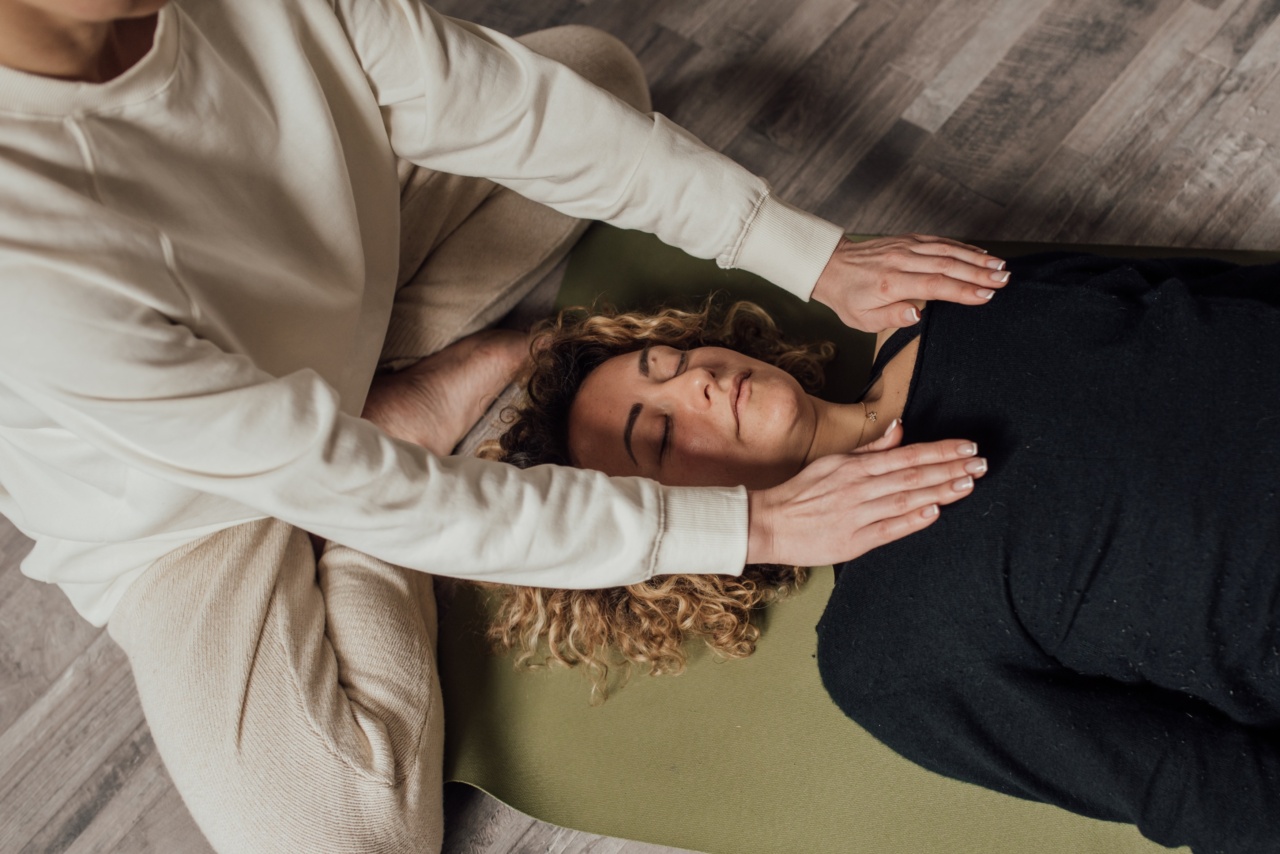Ulcerative colitis is a chronic inflammatory bowel disease that affects the lining of the colon and rectum. It causes symptoms such as abdominal pain, diarrhea, rectal bleeding, and weight loss.
While medical treatments and lifestyle modifications play a crucial role in managing ulcerative colitis, complementary therapies like yoga can further optimize the treatment and improve overall health.
The Benefits of Yoga for Ulcerative Colitis
Yoga is a holistic practice that combines physical postures, breathing exercises, and meditation. When incorporated into the treatment plan for ulcerative colitis, yoga offers several benefits:.
Reduced Inflammation
The practice of yoga has been shown to reduce inflammation in the body. Inflammation plays a major role in ulcerative colitis, and by lowering overall inflammation levels, yoga can help alleviate symptoms and prevent flare-ups.
Improved Digestion
Many yoga poses involve gentle twists and stretches that can stimulate digestion and promote bowel regularity.
By enhancing the function of the digestive system, yoga can help manage the symptoms of ulcerative colitis and improve overall digestive health.
Stress Reduction
Stress has a direct impact on the severity and frequency of ulcerative colitis flare-ups. Yoga is a powerful tool for stress reduction, as it combines movement, deep breathing, and relaxation techniques.
Regular practice of yoga can help individuals with ulcerative colitis better manage stress and minimize the risk of flare-ups.
Increased Mind-Body Awareness
Yoga encourages individuals to develop a greater sense of mind-body awareness. This heightened awareness can help people with ulcerative colitis recognize early signs of a flare-up and take proactive steps to manage the condition effectively.
Recommended Yoga Poses for Ulcerative Colitis
When practicing yoga for the treatment of ulcerative colitis, certain poses can be particularly beneficial. These poses include:.
1. Balasana (Child’s Pose)
This restorative pose helps release tension in the back and abdominal muscles, promoting relaxation and improved digestion.
2. Matsyendrasana (Seated Twist)
Seated twists aid in digestion and help relieve constipation. This gentle twist also stimulates the kidneys and liver, promoting detoxification.
3. Viparita Karani (Legs-Up-the-Wall Pose)
This restorative pose promotes circulation, reduces inflammation, and relieves stress. It is particularly beneficial for individuals experiencing fatigue or inflammation due to ulcerative colitis.
4. Nadi Shodhana (Alternate Nostril Breathing)
This breathing technique balances and calms the nervous system, reducing stress and promoting overall well-being.
5. Savasana (Corpse Pose)
Corpse pose is a deeply relaxing posture that allows the body and mind to unwind and rejuvenate. It can help manage stress and promote better sleep, which is essential for individuals with ulcerative colitis.
Incorporating Yoga into the Treatment Plan
When considering yoga as a complementary therapy for ulcerative colitis, it is essential to consult with a healthcare professional or a qualified yoga instructor who has experience working with individuals with inflammatory bowel diseases.
They can provide guidance on suitable poses, modifications, and breathing techniques to suit individual needs and limitations.
Start with shorter yoga sessions and gradually increase the duration as comfort and strength improve. It’s important to listen to your body and avoid overexertion, especially during flare-ups.
Additional Lifestyle Tips for Managing Ulcerative Colitis
In addition to practicing yoga, there are other lifestyle modifications that can optimize the treatment of ulcerative colitis:.
1. Healthy Diet
Adopting a low-residue diet rich in fruits, vegetables, whole grains, and lean proteins can help manage symptoms and support overall gut health.
2. Stress Management
Reduce stress through practices such as meditation, deep breathing exercises, regular exercise, and hobbies that promote relaxation.
3. Regular Exercise
Engage in moderate exercise regularly, such as walking, swimming, or cycling, to improve overall fitness and enhance digestion.
4. Sufficient Hydration
Ensure an adequate intake of fluids to prevent dehydration and support healthy bowel movements.
5. Adequate Rest and Sleep
Prioritize getting enough rest and quality sleep to support your overall well-being and help manage symptoms.
Conclusion
When incorporated into the treatment plan for ulcerative colitis, yoga can provide numerous benefits such as reduced inflammation, improved digestion, stress reduction, and increased mind-body awareness.
By practicing specific yoga poses, breathing techniques, and relaxation exercises, individuals with ulcerative colitis can optimize their treatment and promote overall health. It is essential to consult with healthcare professionals and experienced yoga instructors to ensure a safe and tailored approach.
Embracing a holistic lifestyle that includes yoga, proper nutrition, stress management, exercise, and adequate rest can significantly improve the quality of life for individuals living with ulcerative colitis.




























